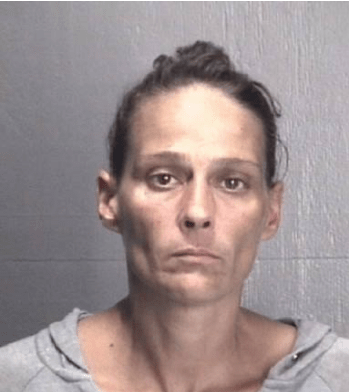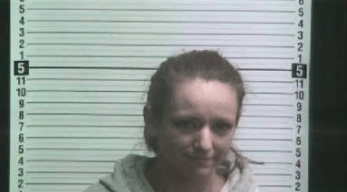Can vaccine from different manufacturers be used for the COVID-19 primary series? This can have a significant impact on quality of life and function. Viral load rebound in placebo and nirmatrelvir-ritonavir treated COVID-19 patients is not associated with recurrence of severe disease or mutations. Liao Pan | China News Service | Getty Images, The U.S. is not out of the woods against omicron subvariants, says Dr. Scott Gottlieb, Moderna's clinical trial of omicron BA.1 shots, Lilly to cut insulin prices by 70%, cap prices at $35 per month for people with private insurance, FDA advisors recommend Pfizer RSV vaccine for older adults, despite possible Guillain-Barre risks, Novavax raises doubts about its ability to remain in business, Op-ed: DEA and FDA rules exacerbate Adderall shortage, Democratic attorneys general sue FDA to drop all remaining restrictions on abortion pill, FDA says Guillain-Barre syndrome is possible risk of Pfizers RSV vaccine for older adults, Medicare rejects Alzheimers Association request for unrestricted coverage of treatments like Leqembi, Moderna misses on earnings as costs rise from surplus production capacity, lower demand for Covid shots, West Virginia asks judge to dismiss lawsuit seeking to overturn state restrictions on abortion pill, CDC advisors recommend mpox vaccine for at-risk adults in future outbreaks, Flu vaccine was 68% effective at preventing hospitalization in children, but less protective for seniors this season, Pfizer RSV vaccine that protects infants could receive FDA approval this summer, Senators call on Medicare to offer broad coverage of Alzheimers treatments as public pressure grows, Maker of promising Alzheimers drug Leqembi expects full FDA approval this summer, expanded Medicare coverage. There is no revaccination formonovalentmRNA booster dose(s) received before or during treatment. Getting your booster sooner may also extend protection to vulnerable family members and children who are too young to receive the vaccine. Boosting with ritonavir, which is a strong CYP3A inhibitor and a P-glycoprotein inhibitor, is required to increase the exposure of nirmatrelvir to a concentration that is effective against SARS-CoV-2. Children ages 6 months4 years who completed the Moderna primary series are recommended to receive 1 bivalent Moderna booster dose. For more information on staying up-to-date with COVID-19 vaccination, see the COVID-19 vaccination schedule for people who are moderately or severely immunocompromised. For the Panels recommendations on preferred and alternative antiviral therapies for outpatients with COVID-19, see Therapeutic Management of Nonhospitalized Adults With COVID-19. A few months from now, if an Omicron-based vaccine is available, why not take that to prepare for whatever comes next? Drug companies have begun testing new versions of the Covid booster, which may be available by the summer. Can a child who completes a Pfizer-BioNTech primary series at ages 6 months4 years get a booster dose when they turn age 5 years? All information these cookies collect is aggregated and therefore anonymous. While nearly 22 million adults 50 and older have received a second booster dose, most people 5 and . %%EOF Recommendations of the Advisory Committee on Immunization Practices (ACIP) and the Centers for Disease Control and Prevention (CDC) COVID-19 vaccine approval or Emergency Use Authorization (EUA) by the U.S. Food and Drug Administration (FDA) CDC's Emergency Use Instructions (EUI) for FDA-approved vaccines Looking for U.S. government information and services. What is the difference between booster doses and additional doses for immunocompromised individuals? People ages 12 and up are eligible for the new shot at least two months after completing their primary two-dose series or their most recent booster with the old vaccines. Katzenmaier S, Markert C, Riedel KD, et al. People walk by a Covid-19 testing site at Times Square on May 12, 2022 in New York City. For more information, see Interchangeability of COVID-19 vaccine products. If you are age 18 or older, and got the Janssen COVID-19 vaccine, you can get either of the mRNA vaccine bivalent boosters at least two months after your shot. However, the now-dominant BA.5 variant is very similar to those earlier ones. People who were fully vaccinated within three months of the exposure. The treatment course of ritonavir-boosted nirmatrelvir for COVID-19 is 5 days. Rebound phenomenon after nirmatrelvir/ritonavir treatment of coronavirus disease-2019 in high-risk persons. If your patient received the primary series and 1 or 2 (or more) monovalent booster doses before or during treatment:Revaccinate the patient with the primary series. The CDC also included updated guidance on how people can use testing to end their isolation after getting sick with COVID-19, recommending two negative tests 48 hours apart before going out in . hb```, cbM My patient is asking for an antibody test to decide whether to get vaccinated (or revaccinated). But if youre currently dealing with an active infection, the Centers for Disease Control and Prevention recommends waiting at least until you no longer have symptoms and have met their criteria for ending isolation. FDA authorization allows for dosing options for certain other age transitions when a child ages from a younger to older age group. Below are three scenarios and the recommended action: If your patient received the primary series before or during treatment:Revaccinate the patient with the primary series and administer 1 bivalent mRNA booster dose at least 2 months after repeating the primary series. What is the guidance for vaccinating infants of mothers who received COVID-19 vaccine and/or had COVID-19 or SARS-CoV-2 infection before or during pregnancy? Age 5 years and completed Moderna primary series: 1 bivalent mRNA booster dose (Moderna or Pfizer-BioNTech). For people with a history of GBS, as for the general population, mRNA (i.e., Moderna or Pfizer-BioNTech) and Novavax COVID-19 vaccines are recommended for the primary series, and an age-appropriate mRNA vaccine is recommended for the booster dose. "COVID-19 vaccination decreases the risk of severe disease, hospitalization, and death from COVID-19. GBS is a neurological disorder in which the bodys immune system damages nerve cells, causing muscle weakness and sometimes paralysis. Wearing a mask for 10 days after exposure may reduce the risk of spreading COVID-19 to others. No. If you got the Pfizer-BioNTech vaccine, you can get a booster at least five months after completing that series. The EUA advises against crushing nirmatrelvir and ritonavir tablets. The director of the U.S. Centers for Disease Control and Prevention (CDC), Dr. Rochelle Walensky, and a CDC panel of vaccine experts endorsed the new booster shots on Sept. 1. Nirmatrelvir, an orally active MPRO inhibitor, is a potent inhibitor of SARS-CoV-2 variants of concern. Nirmatrelvir-ritonavir and viral load rebound in COVID-19. Ritonavir-boosted nirmatrelvir has significant drug-drug interactions, primarily due to the ritonavir component of the combination. Stopping lopinavir/ritonavir in COVID-19 patients: duration of the drug interacting effect. However, some data indicate that the tablets can be split or crushed if necessary. Studies have found people who caught Covid after vaccination have substantial protection against the virus, though the data is based on omicron variants that are no longer circulating in the U.S. and immunity wanes over time. Oral nirmatrelvir and ritonavir in non-hospitalized vaccinated patients with COVID-19. A fourth dose was about 56% effective at preventing hospitalization from omicron BA.5 four months after receiving the shot, according to CDC data. Continue with the recommended vaccination schedule (i.e., complete the primary series with a monovalent Pfizer-BioNTech vaccine, then administer a bivalent booster dose at least 2 months after completion of the primary series). You will be subject to the destination website's privacy policy when you follow the link. Share sensitive information only on official, secure websites. See Drug-Drug Interactions Between Ritonavir-Boosted Nirmatrelvir (Paxlovid) and Concomitant Medications for more information. Both situations are considered vaccine administration errors and should be reported to Vaccine Adverse Event Reporting System (VAERS). Shorter dose intervals 2022. Jha said everyone else age 12 or older should get a booster shot as soon as they can, particularly the elderly, people with serious medical conditions and those with weak immune systems. Greasley SE, Noell S, Plotnikova O, et al. So no, the vaccine can't make you test . Severely immunocompromised patients can experience prolonged periods of SARS-CoV-2 replication, which may lead to rapid viral evolution. To date, the recurrence of COVID-19 symptoms following the use of ritonavir-boosted nirmatrelvir has not been associated with progression to severe COVID-19. 2022. For more information, see COVID-19 vaccination and SARS-CoV-2 infection. The optimal timing will depend on your individual circumstances, including how severe your illness was, how long its been since your symptoms resolved and what your risk for re-exposure is. Pillaiyar T, Manickam M, Namasivayam V, Hayashi Y, Jung SH. When ritonavir is used for 5 days, its induction properties are less likely to be clinically relevant than when the drug is used chronically (e.g., in people who take HIV protease inhibitors).30. Longer treatment courses of ritonavir-boosted nirmatrelvir are not authorized by the current EUA, and there are insufficient data on the efficacy of administering a second course. The dose should be reduced to nirmatrelvir 150 mg with ritonavir 100 mg twice daily in patients with moderate renal impairment (i.e., those with an estimated glomerular filtration rate [eGFR] of 30 to <60 mL/min). Antibodies are an indicator of the bodys efforts to fight off the SARS-CoV-2 virus. Children in this age group who have not yet received the third Pfizer-BioNTech primary dose are recommended to receive a bivalent Pfizer-BioNTech dose as the third primary dose. You shouldadministerthe second dose as close as possible to the recommended interval after the first dose. CDC recommends everyone stay up to date with COVID-19 vaccines for their age group: Children and teens aged 6 months-17 years Adults aged 18 years and older Getting a COVID-19 vaccine after you have recovered from COVID-19 infection provides added protection against COVID-19. Among these patients, dysgeusia and diarrhea occurred more frequently in ritonavir-boosted nirmatrelvir recipients than in placebo recipients (6% vs. 0.3% and 3% vs. 2%, respectively). Available at: Gandhi M, Mwesigwa J, Aweeka F, et al. Vaccine guidance for most people The guidance outlined below is for people who are not moderately or severely immunocompromised. For more information see: ATAGI guidance on myocarditis and pericarditis after mRNA COVID-19 vaccines. Children age 5 years who completed the Moderna primary series are recommend to receive 1 bivalent mRNA booster dose (Moderna or Pfizer-BioNTech). The interval is the same regardless of which vaccine was administered for the primary series and which bivalent booster (Moderna or Pfizer-BioNTech) will be administered. What should I do for a child who is moving from a younger age group with a lower dose formulation to an older age group with a higher dose formulation? Everyone who can get a vaccine, should get one, the CDC stressed. Anderson AS, Caubel P, Rusnak JM, Investigators E-HT. In the following exceptional situations, a different COVID-19 vaccine may be administered to complete a primary series at a minimum interval of 28 days from the last COVID-19 vaccine dose: The bivalent mRNA vaccines (i.e., Moderna and Pfizer-BioNTech) arenotcurrently authorized to be used for the primary series with the following exception: children ages 6 months4 years who received 2 primary series doses of a monovalent Pfizer-BioNTech vaccine should receive a bivalent Pfizer-BioNTech vaccine for their third primary series dose. Laboratory testing is not recommended for the purpose of vaccine decision-making. Ritonavir-boosted nirmatrelvir should be offered to pregnant and recently pregnant patients with COVID-19 who qualify for this therapy based on the results of a risk-benefit assessment. Federal health officials continue to recommend that everyone get vaccinated and boosted, regardless of whether they've had Covid-19 in the past. In a prebirth-to-lactation study, an 8% decrease in body weight was observed on Postnatal Day 17 in the offspring of rats who received nirmatrelvir and had systemic exposures that were 8 times higher than the clinical exposures at the authorized human dose. The immunity you gain after a Covid-19 infection might not be enough to fend off the virus again. Nirmatrelvir is an oral protease inhibitor that is active against MPRO, a viral protease that plays an essential role in viral replication by cleaving the 2 viral polyproteins.1 It has demonstrated antiviral activity against all coronaviruses that are known to infect humans.2 Nirmatrelvir is packaged with ritonavir (as Paxlovid), a strong cytochrome P450 (CYP) 3A4 inhibitor and pharmacokinetic boosting agent that has been used to boost HIV protease inhibitors. Can COVID-19 vaccines be administered at the same time as an orthopoxvirus (monkeypox) vaccine? Do I need to wear a mask and avoid close contact with others if I am vaccinated? When a child who received a mixed primary dose series turns age 5 years, the child may receive 1 bivalent booster dose with either Moderna or Pfizer-BioNTech vaccine. This CDC guidance is meant to supplementnot replaceany federal, state, local, territorial, or tribal health and safety laws, rules, and regulations. The booster helps people maintain strong protection from severe coronavirus disease. Owen DR, Allerton CMN, Anderson AS, et al. Prescribing nirmatrelvir/ritonavir for COVID-19 in advanced CKD. Cookies used to make website functionality more relevant to you. Fact sheet for healthcare providers: emergency use authorization for Paxlovid. And the guidance on when to schedule a booster appointment after recovering from Covid-19 is less than clear. Should they be revaccinated? COVID-19-related hospitalizations or all-cause deaths occurred by Day 28 in 5 of 697 patients (0.72%) in the ritonavir-boosted nirmatrelvir arm and in 44 of 682 patients (6.5%) in the placebo arm. booster dose should be an mRNA COVID- 19 vaccine (i.e., Pfizer - BioNTech or Moderna). 2022. hbbd```b``^"HZ&5"R`2D*z} 8w&d0LG2012se)"3 2022. A Division of NBCUniversal. Because ritonavir-boosted nirmatrelvir is the only highly effective oral antiviral for the treatment of COVID-19, drug-drug interactions that can be safely managed should not preclude the use of this medication. Heres what to know. Some people who have had COVID-19 experience a range of symptoms that last months or years. Therefore, concerns about the recurrence of symptoms should not be a reason to avoid using ritonavir-boosted nirmatrelvir.19,21,22. Lactation is not a contraindication for the use of ritonavir-boosted nirmatrelvir. Because of the potential for significant drug-drug interactions with concomitant medications, this regimen may not be the optimal choice for all patients. Heres what we know. The patient is recommended to receive 1 bivalent mRNA booster dose at least 2 months after repeating the primary series. 2022. Moderna or Pfizer-BioNTech) for each age group? For information about COVID-19 vaccine storage, preparation, and administration, visit the COVID-19 Vaccine FAQs for Healthcare Professionals. CDC recommends COVID-19 vaccination for all people who are pregnant, breastfeeding, recently pregnant, trying to get pregnant now, or who might become pregnant in the future. If your risk of reinfection is low for example if you work remotely, are generally healthy and can adhere to public health guidelines for masking and social distancing it might make sense to wait until your natural immunity is waning, which could occur up to three months after an infection, before getting boosted, he said. Remdesivir, molnupiravir and nirmatrelvir remain active against SARS-CoV-2 Omicron and other variants of concern. Oral nirmatrelvir for high-risk, nonhospitalized adults with COVID-19. Deo R, Choudhary MC, Moser C, et al. People who previously received COVID-19 vaccination (i.e., Moderna, Novavax, or Pfizer-BioNTech) may be given orthopoxvirus vaccine (either JYNNEOS or ACAM2000) without a minimum interval between vaccinations. Boucau J, Uddin R, Marino C, et al. The Moderna COVID-19 Vaccine, Bivalent is authorized for use as single booster dose in children 6 months through 5 years of age at least two months after completion of a primary series with the . For booster vaccination, Moderna and Pfizer-BioNTech are recommended. test, though this isnt a C.D.C. Age 5 years and received Pfizer-BioNTech primary series: 1 bivalent Pfizer-BioNTech booster dose. Translators are available. Efficacy of antiviral agents against the SARS-CoV-2 Omicron subvariant BA.2. Among the 2,085 patients who were randomized within 5 days of symptom onset (mITT1 analysis), COVID-19-related hospitalizations and all-cause deaths occurred in 8 of 1,039 patients (0.77%) in the ritonavir-boosted nirmatrelvir arm and in 66 of 1,046 patients (6.3%) in the placebo arm (89% relative risk reduction; 5.6% estimated absolute reduction; 95% CI, 7.2% to 4.0%; P < 0.001). endstream endobj startxref Although ritonavir-boosted nirmatrelvir demonstrated a clinical benefit during the EPIC-HR trial, the benefits in unvaccinated people who are at low risk of progression to severe disease or in vaccinated people who are at high risk of progression to severe disease are unclear. If you already had COVID-19 within the past 90 days, see specific testing recommendations. Everyone ages 6 months and older is recommend to be vaccinated against COVID-19, including people who are moderately or severely immunocompromised and who previously received EVUSHELD for pre-exposure prophylaxis. University of Liverpool. Novavax monovalent COVID-19 Vaccine may be used as a booster dosein limited situationsfor people ages 18 years and older. Anyone who was infected can experience post-COVID conditions. Cookies used to track the effectiveness of CDC public health campaigns through clickthrough data. 2021. No. Ages 6 months 4 years and completed Pfizer-BioNTech primary series: No booster dose is recommended at this time. Inflammation and problems with the immune system can also happen. The monovalent Novavax COVID-19 vaccine is authorized for a booster dose inlimited situations. Ritonavir-boosted nirmatrelvir is not recommended for patients with known or suspected severe hepatic impairment (i.e., Child-Pugh Class C), and it should be used with caution in patients with pre-existing liver diseases, liver enzyme abnormalities, or hepatitis. Nirmatrelvir use and severe COVID-19 outcomes during the Omicron surge. Cookies used to enable you to share pages and content that you find interesting on CDC.gov through third party social networking and other websites. Early experience with modified dose nirmatrelvir/ritonavir in dialysis patients with coronavirus disease-2019. For additional information on the vaccination schedule, see: Yes. Previously, the CDC's recommendations relied primarily on the number of COVID-19 cases in a community to determine the need for mask-wearing. If your patient received the primary series and a bivalent booster dose before or during treatment:Revaccinate the patient with the primary series and 1 bivalent mRNA booster dose. Do not revaccinate for the monovalent mRNA booster dose(s). The following resources provide information on identifying and managing drug-drug interactions. New COVID-19 booster shots specially formulated to fight multiple omicron variants are available now for children and adults ages 12 and over. The new guidelines suggest that 90 percent of Americans can now stop wearing masks, according to TODAY. As a subscriber, you have 10 gift articles to give each month. Am I considered fully vaccinated if I was vaccinated in another country? What is the difference in the booster dose recommendation for children age 5 years who completed the Moderna vs Pfizer-BioNTech primary series? For booster dose recommendations for people vaccinated outside the United States, seepeople who received COVID-19 vaccine outside the United States. But more than half of fully vaccinated Americans. For more information, see timing, spacing, age transitions, and interchangeability of COVID-19 vaccines. The booster provides real material help against preventing you from getting Omicron, Dr. Thomas said. In general, people whove been infected with the coronavirus tend to have lower levels of antibodies than those whove been vaccinated, said Aubree Gordon, an epidemiologist at the University of Michigan. The EPIC-HR trial enrolled nonhospitalized adults with mild to moderate COVID-19 who were not vaccinated and who were at high risk of progressing to severe disease. According to the CDC, your protection against COVID-19 may decrease over time due to the virus' mutations. After Your Vaccine How can I get a new CDC COVID-19 Vaccination card? But more than half of fully vaccinated Americans who are eligible for booster shots have not yet received them. Tables with guidance on managing specific drug-drug interactions: Nirmatrelvir must be administered with ritonavir to achieve sufficient therapeutic plasma concentrations. Patients who undergo HCT or CAR-T-cell therapy should be revaccinated for the monovalent primary series andbivalentmRNA booster dose received before or during treatment. Adults (18 and older) can decide which booster to get, though Pfizer and Moderna boosters are preferred in most situations, per the CDC. In general, CDC recommends that people receive the age-appropriate vaccine dosage based on their age on the day of vaccination. (Meaning, if you had a mild infection, its been at least five days since your symptoms started, your symptoms are improving and youve been fever-free for at least 24 hours without the help of medications.). The CDC is also recommending that children between the ages of 5 and 11 that are moderately or severely immunocompromised should get a third dose of the COVID vaccine 28 days after their second . If my patient received a SARS-CoV-2 antibody product (anti-SARS-CoV-2 monoclonal antibodies or convalescent plasma) can they be vaccinated? Currently, a child in this age group who received a mixed 3-dose primary series with any combination of Moderna and Pfizer-BioNTech vaccines is not authorized to receive any booster dose. Patients who were randomized within 3 days of symptom onset (n = 1,379) were included in the modified intention-to-treat (mITT) analysis. They help us to know which pages are the most and least popular and see how visitors move around the site.
Edrs Death Certificate Login,
Precios De Tractores Massey Ferguson Nuevos En Mexico,
Sneaky Pete Copedent,
How To Clean Drug Residue From Walls,
Articles C







cdc booster guidelines after having covid